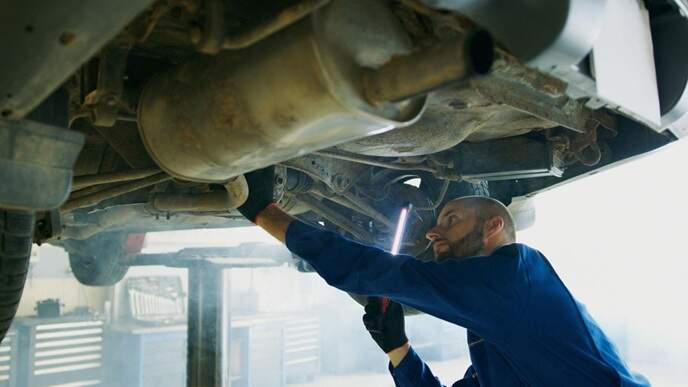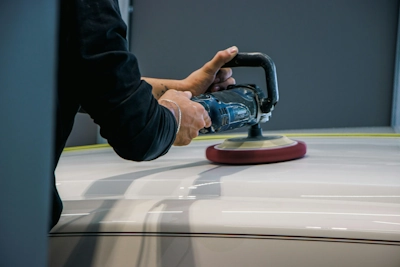A regular service might feel like just another chore, but it’s one of the best things you can do for your vehicle. Servicing keeps your car in good shape, helps avoid unexpected breakdowns, and gives you peace of mind whenever you’re behind the wheel. So, how often should you book a car service? Let’s walk through what servicing includes, when to book it, and why it matters more than most drivers think.
What Does “Servicing” Actually Cover?
Car servicing covers a full inspection and maintenance of your vehicle’s key systems. A minor service usually includes replacing the oil and oil filter, while a major service goes further with more checks and part replacements based on your car’s age and mileage. Typical service items include:
- Replacing oil, filters, spark plugs and brake fluid
- Topping up engine coolant, transmission, and windscreen fluids
- Checking brakes, tyres, steering, suspension and battery health
- Diagnosing engine performance and scanning for error codes
- Checking belts, hoses, and exhaust for early signs of wear
How Often Should You Book a Car Service?
Most car makers recommend a service every 10,000 to 15,000 kilometres, or once a year, whichever comes first. But in Australia, a general rule of thumb is to service your car every six months or 10,000 kilometres. That covers everything from checking fluid levels to spotting early signs of wear before they become bigger problems.
Still, there’s no one-size-fits-all answer. How often you should service your car depends on your driving habits, vehicle age, and road conditions. Your logbook or owner’s manual will list the exact schedule recommended by the manufacturer, and sticking to that can help keep your warranty intact. Here’s a breakdown of what might affect your ideal service timeline:
City Drivers
If you mostly do short trips or spend time in stop-start traffic, your engine might not get warm enough to burn off moisture and contaminants in the oil. This kind of use can wear parts faster, so more frequent servicing might be needed—even if you haven’t hit the kilometre limit yet.
Country or Highway Drivers
If you regularly drive long distances, especially on highways, you might hit the service interval based on distance well before the calendar tells you it’s time. High-speed driving is generally easier on your car, but it still puts plenty of wear on tyres, brakes, and fluids.
Older Vehicles
As cars age, they need more TLC. Rubber hoses and seals start to degrade, fluids break down more quickly, and electrical parts can become less reliable. Every six months is usually the safest bet for cars over five years old.
High-Performance or Turbocharged Engines
These engines often run hotter and work harder, so oil and components can wear out quickly. If your vehicle falls into this category, your logbook may already recommend shorter service intervals.
Heavy-Duty Use
If your car tows a trailer, carries big loads, or is used commercially, servicing might need to be more frequent to keep up with the added stress on brakes, suspension, and the cooling system.
Challenging Conditions
Driving on dusty roads, through flood-prone areas, or in extremely hot or cold climates can all speed up wear and tear. Your filters, fluids, and underbody might need more frequent checks to stay in top shape.

The Long-Term Impact of Skipping Regular Services
Putting off a service might save time or money in the short term, but it tends to cost more over time. Oil turns dirty, parts wear down, and early signs of trouble go unnoticed. Skipping regular servicing can lead to:
- Poor fuel economy
- Sluggish performance or rough gear shifts
- Brake issues or suspension problems
- Increased emissions
- A shorter engine lifespan
- Sudden breakdowns in the middle of a trip
- If you delay a logbook service past its due date, you risk voiding your warranty. Even basic items like spark plugs or air filters, when left too long, can greatly affect how your car runs.
Signs You Shouldn’t Wait Any Longer for a Service
- Engine warning lights or service reminders
- Brakes that feel spongy, noisy, or unresponsive
- Oil or fluid leaks under the car
- Vibrations when driving at speed
- Difficulty starting the engine
- Unusual engine noise, poor acceleration, or reduced fuel range
- Burning smells or odd exhaust smoke
Keep Your Car Running with Tyrepower Servicing
At Tyrepower, we do more than sell tyres. Many of our locations offer full mechanical servicing, with qualified mechanics who know their way around all makes and models. From logbook servicing to urgent repairs, we’ve got the tools, parts and experience to keep your car running smoothly. To book your next service or chat with your local team, contact your nearest Tyrepower store. We’re here to help you stay safe on the road, every time you drive.
This service may not be available at all Tyrepower locations. Please contact 13 21 91 your nearest store to check availability.


























